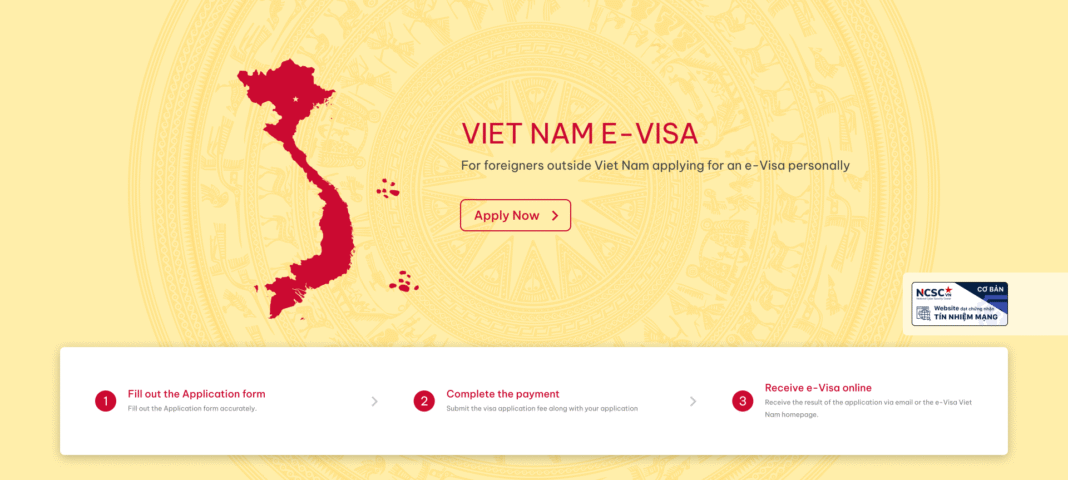The modern travel landscape has been revolutionized by digital authorization systems that streamline the visa application process for international travelers. Two prominent examples of this technological advancement are Vietnam’s online visa system and Canada’s Electronic Travel Authorization program, each representing innovative approaches to border security and travel facilitation. These systems demonstrate how countries can balance security requirements with traveler convenience, creating efficient pathways for legitimate tourism and business travel while maintaining robust immigration controls.
The Evolution of Electronic Travel Documentation
Digital travel authorization represents a significant departure from traditional paper-based visa systems that often required lengthy processing times and physical document submissions. Countries worldwide have recognized the benefits of electronic systems, including reduced processing costs, improved security features, enhanced data management capabilities, and increased convenience for travelers. These systems utilize advanced technology to verify traveler information, conduct security screenings, and issue travel authorizations electronically.
The transition to digital platforms has been particularly beneficial during periods of increased global travel, allowing immigration authorities to process larger volumes of applications more efficiently while maintaining thorough security protocols. Electronic systems also provide real-time tracking capabilities, enabling applicants to monitor their application status and receive immediate notifications about approval or additional requirements.
Understanding Vietnam’s Online Visa System
Vietnam has embraced digital innovation in its immigration processes, offering comprehensive online visa services that cater to various types of travelers. The VIETNAM VISA ONLINE system provides a user-friendly platform where international visitors can complete their visa applications entirely through digital channels. This system has significantly simplified the visa acquisition process for tourists, business travelers, and other visitors seeking to explore Vietnam’s rich cultural heritage, stunning landscapes, and dynamic economic opportunities.
The Vietnamese online visa platform accommodates multiple visa categories, including tourist visas for leisure travelers, business visas for commercial activities, and transit visas for passengers passing through Vietnamese airports. Each category has specific requirements and validity periods designed to match different travel purposes and durations. The system’s flexibility allows applicants to select the most appropriate visa type based on their intended activities and length of stay.
Application processing through Vietnam’s online system typically involves submitting digital copies of required documents, completing detailed application forms, and paying processing fees through secure online payment systems. The platform utilizes advanced encryption technology to protect sensitive personal and financial information during the application process. Most applications are processed within several business days, though processing times may vary depending on the visa category and individual circumstances.
The online system has proven particularly beneficial for travelers from countries without Vietnamese diplomatic missions, as it eliminates the need to travel to distant embassies or consulates. Additionally, the digital format allows for easy document storage and retrieval, making it convenient for travelers to access their visa information during their journey.
Canada’s Electronic Travel Authorization Program
Canada’s Electronic Travel Authorization represents another innovative approach to digital travel documentation, designed specifically for visa-exempt foreign nationals traveling to Canada by air. Understanding WHAT IS CANADA ETA NUMBER is crucial for eligible travelers, as this alphanumeric identifier serves as the primary reference for their electronic travel authorization and links directly to their passport information in Canadian immigration databases.
The Canada ETA number functions as a unique identifier that connects an approved electronic travel authorization to a specific passport. This number is generated automatically upon approval of an ETA application and remains valid for up to five years or until the associated passport expires, whichever comes first. The ETA number enables immigration officers to quickly access traveler information and verify authorization status during border processing.
The ETA system streamlines the entry process for citizens of visa-exempt countries who previously could travel to Canada without any advance authorization. While these travelers still enjoy visa-free access, the ETA requirement provides Canadian authorities with advance information about incoming travelers, enhancing border security while maintaining travel convenience. The system requires minimal information from applicants, typically including passport details, personal information, and responses to basic security and health questions.
ETA applications are processed electronically, with most approvals issued within minutes of submission. The system’s efficiency allows for last-minute travel planning while providing Canadian immigration authorities with necessary advance notice of incoming travelers. Once approved, the ETA is electronically linked to the traveler’s passport, eliminating the need for physical documentation or stamps.
Comparative Analysis of Digital Authorization Systems
Both Vietnam’s online visa system and Canada’s ETA program demonstrate the effectiveness of digital travel authorization, though they serve different purposes and traveler categories. Vietnam’s system primarily replaces traditional visa applications with digital alternatives, while Canada’s ETA adds a layer of pre-screening for previously visa-exempt travelers. Both systems prioritize user experience through intuitive online platforms and rapid processing capabilities.
The success of these programs has influenced other countries to develop similar digital authorization systems, creating a global trend toward electronic travel documentation. This evolution reflects broader technological advances in identity verification, data security, and international information sharing that enable more sophisticated and efficient border management systems.
Future Implications for International Travel
The continued development of digital travel authorization systems suggests a future where international travel becomes increasingly streamlined and secure. These platforms provide foundations for enhanced international cooperation in border security while reducing administrative burdens for both travelers and immigration authorities. As technology continues to advance, we can expect further innovations in digital travel documentation that will make international travel more accessible and secure for legitimate travelers worldwide.
Understanding these digital systems and their requirements enables travelers to navigate modern immigration processes effectively, ensuring compliance with destination country requirements while taking advantage of the convenience and efficiency that electronic authorization systems provide.



